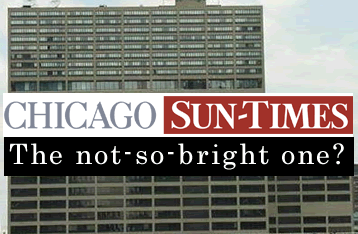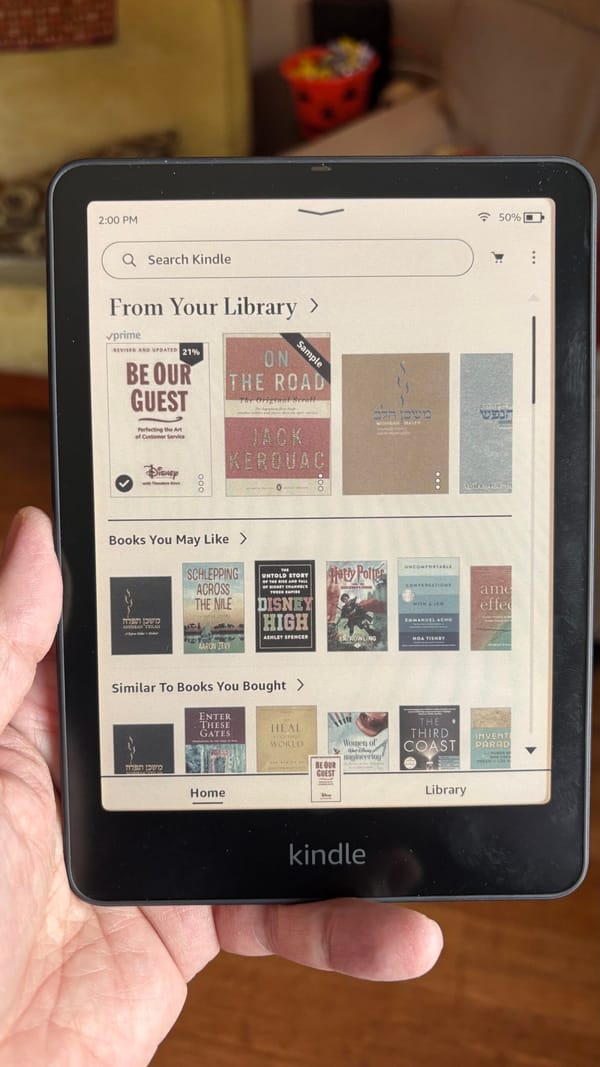The Un-Editorial Page
I just heard the Chicago Sun-Times Opinion page editor, Cheryl Reed, speak at a Publicity Club of Chicago luncheon. Based on what she had to say, someone in the audience asked a pointed question, one my entire table was thinking: What's the use of an opinion page when the editor admits they only wri

[UPDATE: (Dec. 9)--Sun-Times Commentary page editor Cheryl Reed and Yours Truly, er, remember things differently in the comment thread of this post...]
Someone else in the audience asked the question, but I was certainly thinking it. A lot of us were. What's the use of an editorial page when the editor admits they only write what their readers want to hear?
Ok, I'm paraphrasing. But that was the gist of the $64,000 question posed to Chicago Sun-Times Editorial Page editor Cheryl Reed at yesterday's monthly Publicity Club of Chicago speakers' luncheon. Up on the dais with Reed in the banquet room of River North's Maggiano's Italian eatery were Bruce Dold, Editorial Page editor at the Chicago Tribune, and Sally Eisele, managing editor for Public Affairs at WBEZ Chicago Public Radio.
The program began simply enough. Before a room full of publicity professionals, Jeff Bierig, head of Media Relations at IIT, asked the three panelists how their media outlets came up with the opinions that lead their editorial pages. That immediately left Eisele out--public radio doesn't editorialize.
Dold spoke quietly but fiercely of the Trib's desire to help make beneficial change happen in the world by using its editorial pulpit for the highest good and giving voice to the most influential opinion leaders.
And then there was Reed's response. In fact, it turned into something of a mantra, a phrase repeated in almost every answer she gave yesterday: "We try to agree with our readers."
Speaking as a longtime fan of the local reporting in the Sun-Times' Metro section (as I said to my colleauge during the event, "You don't read the Trib to find out what's going on in your neighborhood"), I was floored. And so were a good many other people I spoke with after the event. At my table of 12 before coats were even on, six of us were already busy repeating our own phrase: "Did she really just say what I think she said?"
I'd love be able to answer that with a heartfelt, "Oh no she di'int!" But yes, truly, she did. Cheryl Reed, head honcho of the Sun-Times editorial page (not to mention its recent re-design), stood before a room full of PR people and explained, in detail, how she insists that the opinions that appear in the paper's printed and online Commentary pages be only those opinions that a "working class, southwest side Chicago resident" would agree with.
When pressed for her reasoning by the questioner from the audience, Reed said that the Commentary page needed to be as relevant to Sun-Times' readers as the paper's "big-gorilla" sections, Sports and the aforementioned Metro. And the best way to do that? According to Reed, endorse for the readers only the opinions they want to hear.
Did anyone else's sense of good ethics just go, "Huh?!"
In an age when many newspapers can't even afford the staff to craft editorials anymore, I understand the business side of Reed's position. However, coming on the heels of Bruce Dold's journalistic integrity-laden comments on helping bring good change into the world, Reed's words left a lot of us in the room wondering where, exactly, such journalistic integrity intersects with a decision to run an editorial page that simply mirrors the status quo.
Not once did Reed give any hint of a public-spirited or socially enlightened agenda driving the Sun-Times Editorial page. Not a word, not in an hour of Q&A. But those of us in the audience sure got to hear a lot about how agreeing with your readers keeps you selling papers.
Or should that be selling out? For a Chicago daily claiming to be the city's new Progressive voice, refusing to actually be socially progressive (much less socially proactive) in the crafting of its own daily editorials seems a lot more Populist to me.
Not to mention hypocritical.
Back in November, I wondered the same thing: when will the Sun-Times show some evidence that it's putting its journalistic integrity behind its Progressive aspirations. (And you've really got to wonder when liberals like me start grousing about the same ethical issues that religious conservatives and right-of-center bloggers were grousing about all summer). After Reed's comments from yesterday, I'm still waiting. And now I'm a lot less confident that evidence of good sense will arrive.
I'm more sure that before the week is out Sun-Times readers will be treated to yet another shock-value front-pager about the Stacy Peterson case. But even sensational journalism eventually loses its power to entice.
Whether it's on page one or below the editorial banner.




